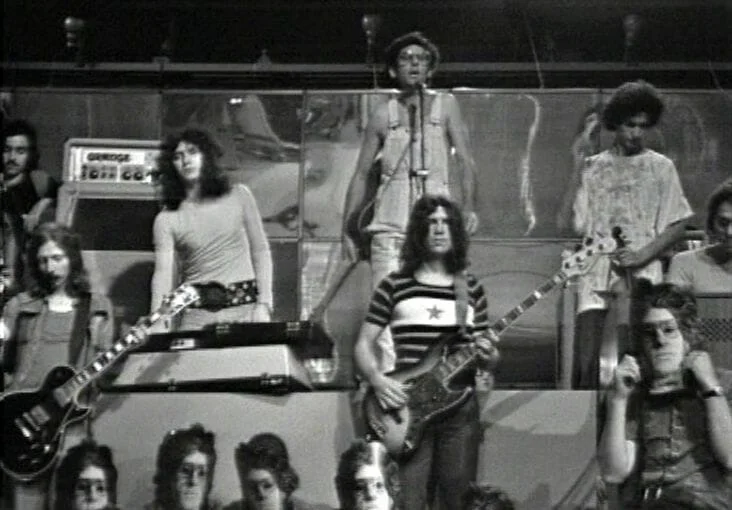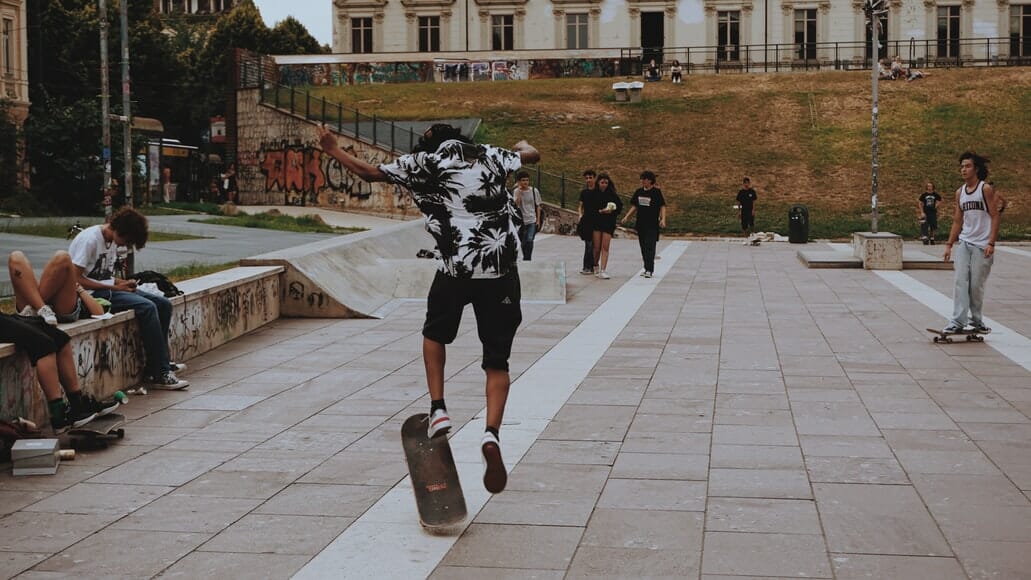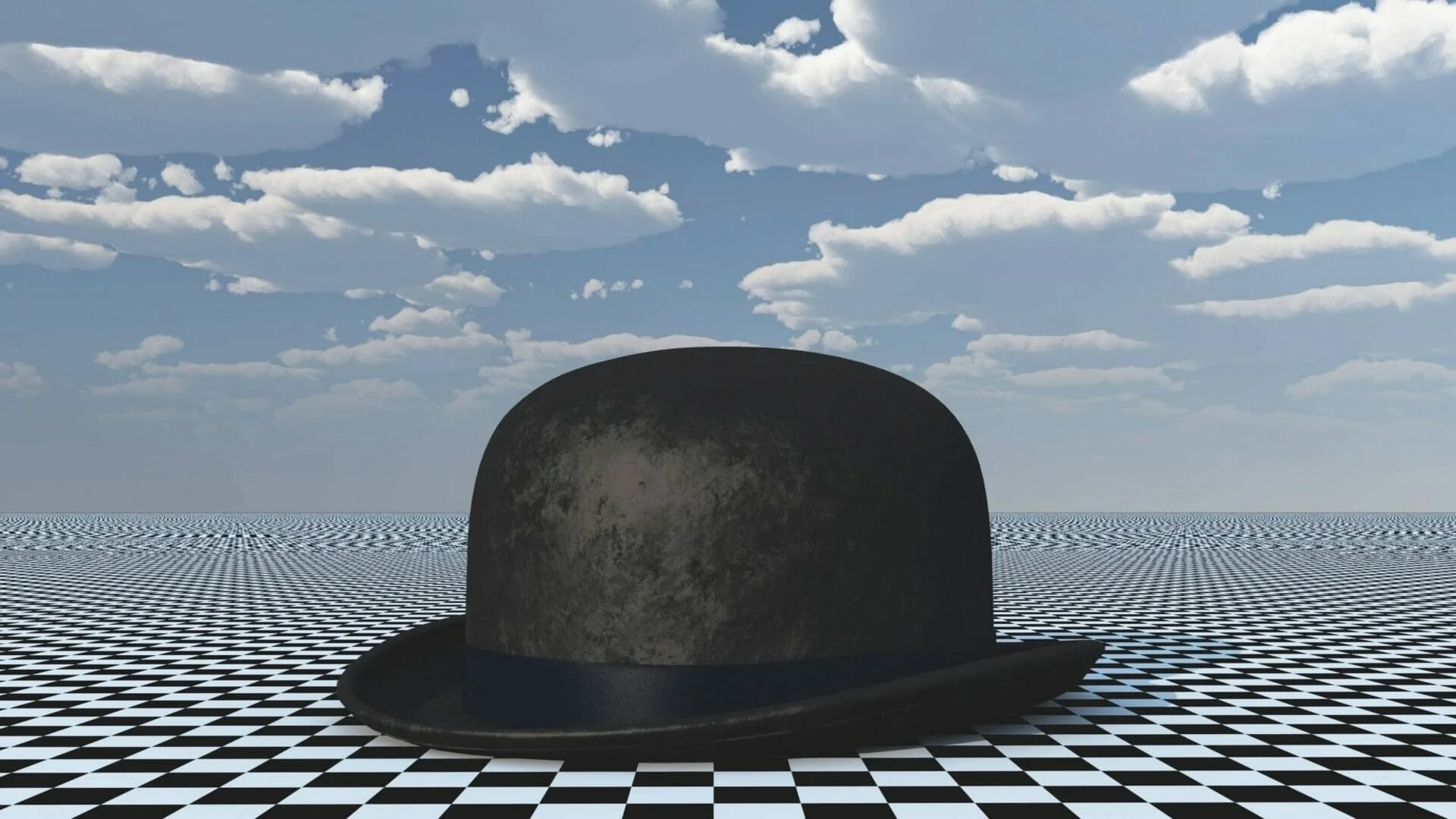
La voce del Padrone | Franco Battiato’s Pop Miracle
Artist
Year
Country
Tracks
Runtime
Written by
Produced by
Genre
Label
At the beginning of the 1980s, the Italian singer and composer Franco Battiato could have hardly been described as a pop musician. Over the previous ten years, he had published eleven albums confidently oscillating between prog, electronic music and avant-garde. He had spent a large part of the decade locked up in his flat, experimenting with synthesizers in an attempt to match the practice of meditation with traveling in sound. Sometimes, he would appear on Italian Television, weirdly dressed, in his huge glasses, and played to big audiences, with his complex, yet mesmerizing tunes. But his followers remained a niche audience.
Then, in September 1981, Battiato published La Voce del Padrone, a more accessible, but equally well researched work. A few months later, having been on the top of hit parades without a break, the album became the first album in the history of Italian music to sell more than a million copies.
Sophisticating Pop
Ever since the beginning of his career, Battiato had never made success a priority. Most of all, he was concerned with the profundity of the experiences he could create. He believed there were “essence musicians” and “personality musicians,” and considered himself to belong to the first category. But as the 70s came to an end, he realized that accessibility and relevancy were not necessarily in conflict. On the very contrary, interacting with larger audiences could be part of his growth as an artist. As he declared in an interview to RAI:
I had been alone too long, trying to experiment, and it was healthy, and salutary, and consequential, to have a shameless and ambiguous contact with the great audience as well. No longer small aggregations, but really big ones.
After this realisation, he released L’era del Cinghiale Bianco (1979) and Patriots (1980). The evolution was palpable: both albums were far more approachable than his previous works. That was thanks to the collaboration with Giusto Pio, a classical composer who also happened to be a popular music enthusiast. Amongst others, Pio had collaborated with Milva, Alice and Giuni Russo, some of Italy’s most famous female vocalists. When he and Battiato met, the Italian pop music landscape was dominated by commercial artists like Umberto Tozzi, the author of the world-famous song Gloria. In such a landscape, the space for a sophisticated artist like Battiato seemed to be very narrow. Yet, despite this, he was determined to reach big audiences.
While the shift was already happening, the balance was yet to be found. Then, in June ’81, Battiato and Pio gathered once again in the Studio Radius, in Milan, and magic finally happened.
“That’s on associative thinking…”
There is something miraculous in the harmony infusing La Voce del Padrone. The lyrics are ancestral and yet shamelessly modern. The sound smoothly goes from majestic to danceable to intimate. It is in every way a pop album, but a unique one of its kind. Almost all of the tracks were conceived as potential hits, strictly following the traditional schemes of the song-form. Yet, Battiato embellished this form with unexpected suggestions.
Battiato knew how to play on contrasts: choruses, for example, were often entrusted to lyrical singers. In other cases, he did the exact opposite and ironically exaggerated the mannerisms of pop. Cuccurucucù, one of Battiato’s greatest hits, follows this logic. On a swift up-tempo rhythm, that might remind the listener of the British and US new wave of the late 1970s, Cuccurucucù melds together faraway worlds. The title is taken from a 1956 Mexican folk song, the strophe recounts memories of the author’s childhood in Sicily, and the bridge is a pastiche from ubiquitous 1960s songs by Bob Dylan, The Beatles and The Rolling Stones. In a similar vein, Centro di gravità combines references to the esoteric teachings of G. I. Gurdjieff with a “postmodern” landscape of cultural displacement.
Battiato was conscious of the oddity of his creative process. In Segnali di Vita, the most intimate track of the album, he sings “È colpa dei pensieri associativi/se non riesco a stare adesso qui” (“That’s on associative thinking/if I can’t stay here right now”). To the listener, this almost sounds like a poetic declaration. Like most of Battiato’s work, La voce del Padrone consists of musical and lyrical flights of fancy.
The Samurai’s Way to Music
In his encounter with pop, Battiato found a real unique balance: so unique as to make it unrepeatable. This is consistent with his approach to composing, which he saw as a form of meditation and a way to travel within the Self. Battiato himself found that the common thread of his work lay most of all in his attitude:
…what I find invariably present in all of my works, from the avant-gardes of the seventies to my very recent Messa Arcaica, is a constant quest for beauty, harmony, fluidity of solutions that move within the chosen language.
Yet, despite his style being so personal, his influence on Italian music could not be greater. As Italian music journalist Giovanni Ansaldo put it, we all owe something to Franco Battiato. Over the years, he entertained fruitful collaborations with musicians from all backgrounds, ranging from classical composers to punk bands. The artists who paid him tribute are countless and just as varied. One can hear alternative songwriters like Colapesce and Carmen Consoli cover his songs. But can also bump into remixes by dance DJs.
This is what makes Battiato’s music so mesmerizing: his ability to switch seamlessly between the opposites. He was well aware of it. As he once declared, quoting the Rules of Samurais: “one must do light things seriously, and serious things lightly.”
You can stream La Voce del Padrone on Spotify.
Tag
Buy a ☕ for Hypercritic








